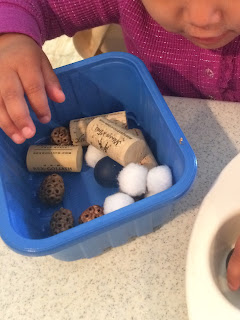School Readiness
This is just a summary of ideas to support you in this journey of parenting and school readiness. At the end of the day, do what works best for you and your child. Keep in mind these characteristics will also look different for children with special needs. Special accommodations and recommendations should be followed specific to each child's abilities. Over all, if you focus on the following characteristics; your child will have a stronger ability to absorb information they need to know about colors, shapes, numbers and letters. Over 6 years ago I dove into studying about school readiness as I finished up my masters degree in Education. My final project was titled: A Parent's Guide to Supporting the Social and Emotional Characteristics Necessary for School Readiness. The rest of this post will be highlighting pieces of that project.
This guide was based on the Heart Start Report from the organization Zero to Three. There were 7 social and emotional characteristics they focused on: self-control, confidence, curiosity, intentionality, relatedness, capacity to communicate and cooperativeness. For each characteristic I've provided simple and practical ways to encourage your child in each of these areas.
Self - Control: "the ability to modulate and control one's own actions in age-appropriate ways; a sense of inner control."
Ideas for Supporting Self-control:
1) Play games that require following directions.
2) Include rest time within the daily routine. Click here for information on being intentional within routines.
3) Use language that helps describe the child's mood.
Confidence: "A sense of control and mastery of ones body, behavior and world; the child's sense that he is more likely than not to succeed at what he undertakes, and that adults will be helpful."
Ideas for Supporting Confidence:
1) Display the child's work.
2) Provide a lot of encouragement even when not successful.
3) Provide ample amount of time to practice a new skill.
Curiosity: "the sense that finding out things is positive and leads to pleasure."
Ideas for Supporting Curiosity:
1) Allow children to make a mess. This also provides learning experiences in cleaning up.
2) Rotate toys available, this will ignite renewed interest as "new" toys are made available to them. Toy Rotation Ideas Here.
3) Be willing to answer the questions; why? whats that?
Intentionality: "the wish and capacity to have an impact and to act upon that with persistence."
Ideas for Supporting Intentionality:
1) Organize certain materials just out of reach which will require adult support. Such as writing materials, art medium or loose parts for building things.
2) Brainstorm ideas together by reading books, writing down their words for them or ask them questions about what they are trying to accomplish.
Relatedness: "the ability to engage with others based on the sense of being understood by and understanding others."
Ideas for Supporting Relatedness:
1) Make facial expressions in a mirror together and verbalize the possible emotion being expressed.
2) Mirror-talk: state how the child is feeling when they are crying, smiling, etc. Label the emotions of others around them.
3) Role play with puppets, or their favorite animals.
Capacity to Communicate: "the wish and ability to exchange ideas, feelings and concepts with others. This is related to a sense of trust in others and of pleasure to engaging with others, including adults."
Ideas for Supporting a Capacity to Communicate:
1) Self-talk: state what you are doing during daily routines and activities.
2) Talk with and ask questions even if the child is not verbal yet.
3) Read a variety of books.
Social and emotional characteristics are key in preparing children for school. These skills will ultimately enable a child to sit still, follow directions, communicate needs and show empathy towards others. All of these are necessary for success in school! As a mom, I do my best to implement these suggestions. However, I'm human and there are MANY days when I want to crawl back into bed, hide from my children in the bathroom, or escape by mindlessly scrolling through the internet. (checkout "Goodbye Mommy Guilt" for a little more encouragement). On those good days, when I'm inspired to implement all I've learned, I roll up my sleeves and get to work right along side my little explorers. May you always give yourself grace in the process and have confidence right along side your child as you conquer this "school readiness" thing.
Szanton, E. and others. (1992). Heart start report: emotional foundations of school readiness. Arlington, VA: Zero to Three Publications.






Comments
Post a Comment